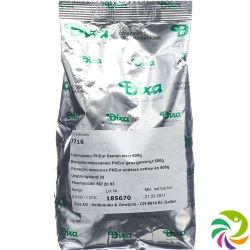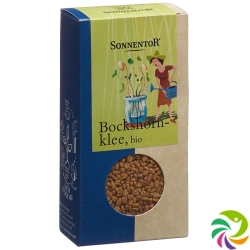Fenugreek and Breastfeeding: What Nursing Mothers Should Know

Breastfeeding mothers regularly search for natural methods to grow their milk supply to meet their baby's nutritional needs. One such natural remedy that has gained popularity is fenugreek. Renowned for its lactogenic residences, fenugreek has been used for centuries to support and increase milk manufacturing in breastfeeding ladies.
What is Fenugreek?
Fenugreek, scientifically known as Trigonella foenum-graecum, is a versatile herb that has been used in traditional medicine and cooking for centuries. Native to the Mediterranean place, southern Europe and western Asia, fenugreek is known for its many health benefits.
Fenugreek is rich in several essential vitamins that contribute to its health advantages. The vitamin A found in fenugreek is critical for maintaining healthy vision, skin, and immune function. This vitamin promotes the growth and repair of body tissues and is critical for overall health. Another crucial vitamin found in fenugreek is vitamin B6. This vitamin plays an important function in the development and functioning of the brain and facilitates the body converting food into energy. Fenugreek is also a good supply of vitamin C, an effective antioxidant that helps the immune gadget, skin health , and wound healing. It additionally consists of vitamin K, which is important for blood clotting and bone health.
In addition to vitamins, fenugreek is rich in important minerals. Iron is one of the key minerals in fenugreek, necessary for the production of hemoglobin, which carries oxygen in the blood. Fenugreek's high iron content material makes it useful for preventing anemia. Another critical mineral determined in fenugreek is magnesium, which supports muscle and nerve function, blood sugar control, and bone health. Manganese, additionally present in fenugreek, is worried in bone formation, blood clotting and reduces inflammation. Fenugreek is wealthy in calcium, that's essential for preserving the strength of bones and enamel, and also plays a crucial position inside the functioning of muscle tissues and the transmission of nerve alerts. The potassium in fenugreek helps regulate fluid balance, muscle contractions, and nerve signals, at the same time as zinc supports the immune system, promotes wound healing, and is vital for DNA synthesis.
Fenugreek Breastfeeding
Stimulation of milk production
Fenugreek belongs to foods to help milk supply, which makes it a popular natural remedy amongst nursing mothers. The fundamental mechanism through which fenugreek stimulates milk manufacturing is the excessive content of phytoestrogens.
Phytoestrogens are plant compounds that mimic the activity of estrogen, a hormone that is critical to the lactation process. Estrogen performs an important role in the development and maintenance of the mammary glands, which are responsible for milk production. Mimicking estrogen, the phytoestrogens in fenugreek help stimulate the mammary glands, thereby boost milk supply fast.
Phytoestrogens in fenugreek, in particular diosgenin, engage with estrogen receptors in the body. This interplay can assist balance the hormones that are important to the lactation system. During pregnancy and after childbirth, the level of estrogen and progesterone fluctuates substantially. High ranges of estrogen and progesterone throughout pregnancy prepare the breasts for milk production. After childbirth, a sudden drop in these hormones, together with an upward thrust in prolactin, triggers milk production. Fenugreek helps keep this delicate hormonal stability through making sure that prolactin levels remain high enough to support continuous milk production.
The role of prolactin
Prolactin is the primary hormone accountable for the synthesis of milk. It is produced by the anterior lobe of the pituitary gland and stimulates the mammary glands to produce milk. Fenugreek phytoestrogens are believed to enhance the body's response to prolactin, thereby growing milk production. By increasing the level of prolactin, fenugreek ensures the activity of the mammary glands and the ability to provide a sufficient quantity of milk to satisfy the needs of the child.
Increased launch of oxytocin
In addition to affecting estrogen and prolactin, fenugreek also can affect the release of oxytocin. Oxytocin is the hormone answerable for the let-down reflex. When a baby sucks, sensory receptors in the nipples send signals to the brain, prompting the discharge of oxytocin. This hormone causes the milk ducts to contract, pushing milk to the nipple and making it to be had to the baby. By potentially growing the discharge of oxytocin, fenugreek can help make certain a smoother and more efficient milk ejection process, making breastfeeding simpler for both mother and baby.
Safe Use of Fenugreek
Fenugreek is a completely popular herbal supplement, but, like every complement, it's vital to apply it safely and responsibly. Before incorporating fenugreek supplements into your diet, it is critical to consult with a healthcare professional. They will offer personalized advice based on your health history, current medications and unique health needs. Fenugreek, while generally taken into consideration safe for maximum people, may also engage with certain medicines:
- Medications to lower blood sugar: Fenugreek lowers blood sugar, which can also engage with medications used to treat diabetes, which include insulin or oral hypoglycemic marketers.
- Anticoagulants: Fenugreek might also thin the blood and interact with anticoagulants or antiplatelet dealers along with warfarin or aspirin. This interplay may also increase the chance of bleeding.
- Other medications: Fenugreek may interact with medicines for thyroid ailment, cholesterol, and other health problems. A healthcare professional can assess your medication listing to determine any potential interactions.
Medical conditions
- Diabetes: People with diabetes have to use fenugreek with caution due to its blood sugar-decreasing outcomes. The physician will help control blood sugar stages and adjust remedy plans consequently.
- Hormonal disorders: The phytoestrogen content in fenugreek can have an effect on hormone degrees, that is a challenge for humans with hormone-touchy conditions inclusive of breast cancer, ovarian cancer, or endometriosis.
Integrating Fenugreek into Your Daily Routine
Fenugreek seeds have a slightly bitter taste and a unique aroma which could decorate the flavor of many dishes. Here are some ways to feature fenugreek seeds to your food regimen:
- Roasted fenugreek seeds: Take DIXA FENUGREEK SEEDS, lightly fry the seeds in a dry pan until golden. Roasting helps to lessen the bitterness and emphasize the nutty flavor. Sprinkle roasted seeds on salads, soups or stir-fries. They also can be delivered to yogurt or used as a seasoning for roasted vegetables and meat.
- Fenugreek Powder: Grind the fenugreek seeds right into a fine powder using a spice grinder or mortar. Add fenugreek powder to curries, stews and soups for a subtle increase of taste. It can also be mixed into homemade spice or used to season rice and lentil dishes.
- Inclusion in baked items: Fenugreek seeds or powder can be delivered to various baked goods which include bread, cakes and crackers. Add a small amount of fenugreek seeds or powder to dough or batter. Start with a teaspoon and regulate consistent with your taste. The best option would be to use Sonnentor natural fenugreek seeds.
Disclaimer: The article includes information about the usage of fenugreek as a product to grow milk production and does not constitute clinical recommendation. Always consult your physician with any questions about using fenugreek or every other supplement while breastfeeding.


